Iran Renews Ultimatum To Kuwait Over Oil Field Rights
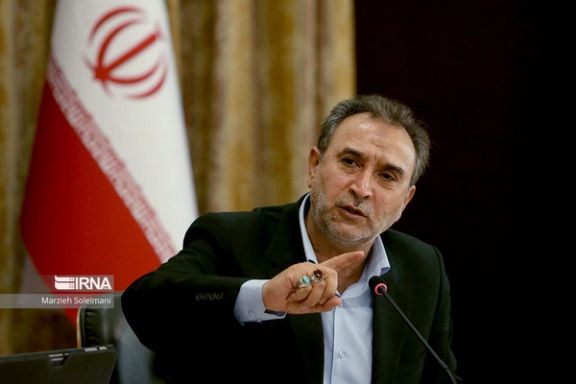
Iran has reiterated its ultimatum to Kuwait concerning the disputed Arash gas field.

Iran has reiterated its ultimatum to Kuwait concerning the disputed Arash gas field.
Iran's vice president for legal affairs, Mohammad Dehghan, emphasized Iran's position, stating, "We will not grant unilateral extraction rights without considering our country's interests to any country."
He stated, "Under no circumstances will the Islamic Republic of Iran retreat from its 'acquired right' in the Arash gas field."
The Arash field, also known as Durra or Dorra by Saudi Arabia and Kuwait, has become a focal point of contention. In 2022, a Kuwaiti-Saudi Arabian development agreement concerning the field drew criticism from Iran, which claims a stake in it. Durra is estimated to hold around 20 trillion cubic feet in proven reserves.
Discovered in 1967, the offshore field boasts substantial reserves, including approximately 310 million barrels of oil and significant gas reserves.
Saudi Arabia and Kuwait's recent statements regarding the energy reserve field have intensified tensions, with demands for Iran to demarcate its maritime borders in the region.
In 2001, Iran deployed drilling equipment into the field, leading Kuwait to file complaints with international organizations. Subsequently, Iran halted its preparations for exploitation, and Kuwait also put on hold its plans in the region with Saudi Arabia.
Iran's access to international companies for the development of its oil and gas fields has been hampered by sanctions over its nuclear program. As a result, Iran has turned to allies like Russia to advance its oil field projects. China remains its biggest customer.
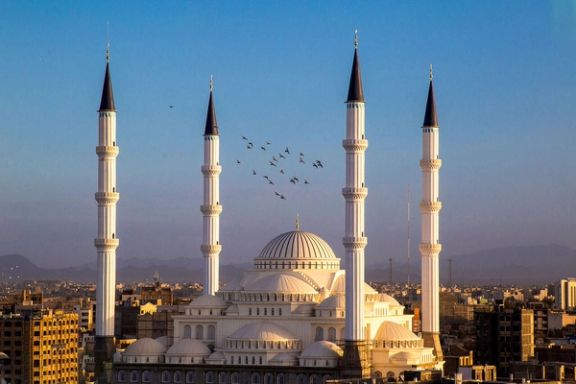
Plainclothes agents attacked several Norouz travelers in the southeastern city of Zahedan, seizing their mobile phones near the Makki mosque on Monday.
The mosque has been the center of anti-regime protests and gatherings within the past months with Mowlavi Abdolhamid, the outspoken Sunni leader delivering weekly sermons.
Additionally, the windows of several travelers' vehicles were shattered in what appears to be a coordinated effort.
Furthermore, three members of Zahedan's Makki Mosque, who were assisting Norouz travelers, reportedly faced summons and threats from security forces.
The incidents, as outlined by the Halvash rights group and echoed by Baluch activists, are perceived as tactics aimed at instilling fear and discouraging attendance at the Makki Mosque, particularly to prevent interactions with Mowlavi Abdolhamid.
Amid the atmosphere of tension and intimidation, Hossein Ronaghi, a human rights activist and former political prisoner, engaged in a conversation with Mowlavi Abdolhamid at Zahedan's Makki Mosque on Monday. Ronaghi was invited as a guest to Abdolhamid’s reception at the mosque.
Abdolhamid, known for his outspoken criticism of the Iranian regime, continues to advocate for justice and freedom despite facing opposition.
The developments unfold against the backdrop of ongoing struggles faced by Baluch Iranians, especially in Sistan-Baluchestan Province, where minority communities endure repercussions for their participation in the 2022 protests.
The province blighted by poverty and predominantly Sunni Baluch, has witnessed a heavy-handed response from the regime, with dissenters facing punishments, including execution.
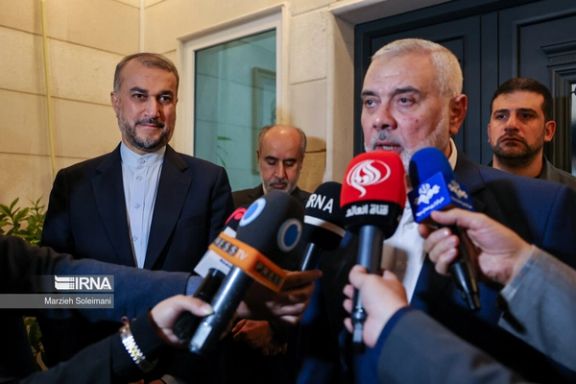
Ismail Haniyeh, the political head of Hamas, is scheduled to visit Tehran on Tuesday to meet senior Iranian officials on the back of the United Nations Security Council's adoption of a resolution demanding a ceasefire between Israel and the Palestinian terror group.
Iran has long been a supporter of Hamas and has vocally praised its war efforts since it invaded Israel on October 7, killing 1,200 mostly civilians and taking more than 250 captive.The forthcoming visit marks Haniyeh's second trip to Iran since the outbreak of the conflict.
On the streets of Tehran just hours after the attack, sweets were distributed and celebrations were taking place to hail the attack.
Reacting to Monday's resolution, Iranian Foreign Ministry spokesman Nasser Kanaani hailed it as a "positive step" as Israel's relentless retaliation has led to the razing of much of Gaza in a bid to eradicate the terror group and free the hostages.
The UN resolution made no mention of the hostages.
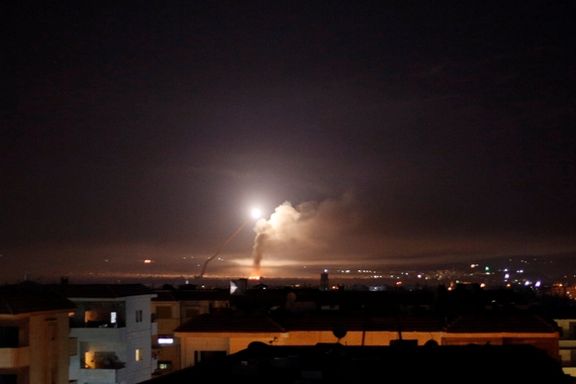
Multiple military sites related to Iran’s Revolutionary Guards in Syria were hit early Tuesday local time, causing destruction and casualties, according to several local media.
Sabereen News and Al-Mayadeen, affiliated with the IRGC and Hezbollah respectively, say 20 have been injured in airstrikes targeting both “security and residential” buildings.
The UK-based Syrian Observatory for Human Rights says “nine pro-Iranian fighters, including a leader and a Syrian” have been killed in a villa that served as a “communication center.”
Some sources reported that the commander of IRGC-affiliated forces in eastern Syria, an individual named Haj Askar, a clear nom de guerre, was killed in the strikes. The sources say that he had left Syria in in recent weeks, when the US had threatened retaliatory attacks, but that he had recently returned and was meeting with affiliated militia groups.
The airstrikes seem to have been more powerful than many similar strikes in Syria in recent weeks. Shortly after the explosions, multiple Syrian outlets attributed it to ‘Americans.’ But Al-Jazeera quoted an unnamed US official who denied the country’s involvement in the attacks.
Recent history would suggest that the operation has been carried out either by Israel or the United States, but the reason, the timing, and the actual targets are all unclear at the time of writing.
Unconfirmed reports from Syrian sources claim that “a meeting” was being held at one of the targeted sites, involving IRGC personnel and members of IRGC-affiliated armed groups in Syria and Iraq. This is yet to be confirmed by any official or affiliated outlet.
The airstrikes seem to have hit a-Bukamal and al-Mayadin in Deir Ezzor in eastern Syria, bordering Iraq. The IRGC and its allied forces in the region are known to have a strong presence in these areas.
Israel has repeatedly –almost regularly– struck these areas, often claiming to be destroying weapons storages or shipments. Last month, the US also launched several airstrikes in this region, killing several high-ranking members of the IRGC and its allied groups in retaliation for an attack on a remote US base in Jordan that had killed three American soldiers.
Those US operations reportedly forced Iran to recall its commanders. Regular attacks on American bases and troops –that had started after October 7th and the ensuing Israeli onslaught against Gaza– all but stopped following the US retaliatory strikes. Some reports suggest, however, that after a few weeks of relative calm, IRGC commanders have reappeared.
And on Sunday, reports emerged of a drone and rocket attack on the Kharab al-Jir base used by the US-led coalition in northeast Syria. It’s unclear if the airstrikes Tuesday morning have had anything to do with those reports.
Notably, the airstrikes came only hours after the UN Security Council demanded an immediate ceasefire in Gaza, finally passing a resolution with 14 members of the Council voting in favor and the US abstaining.
The US government’s decision to withhold its veto led to a bitter clash between President Joe Biden and Israeli prime minister Benjamin Netanyahu –whose office called off a visit to Washington by two members of the Israeli cabinet.
It is still too early to say if the airstrikes Tuesday was an isolated incident or would mark a new phase of escalation –where IRGC and its allies in Iraq and Syria resume their attacks against American interests in the region.
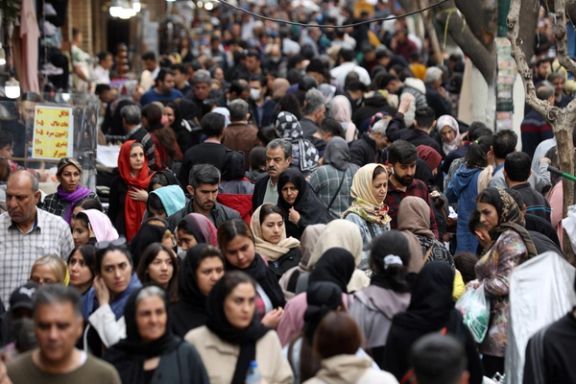
Iran's chronic mismanagement and rampant inefficiencies have led to severe economic challenges, to the extent that even lifting sanctions may not ensure a quick recovery, an economist says.
Warning of a worsening economy in the coming months, Tehran economist Morteza Afghah told local media that the roots of the problem lie in the regime’s non-developmental strategy that prioritizes ideological and political agendas over economic progress.
“The reality is that over the past three decades since the end of the [Iran-Iraq] war, the country's economy has been mismanaged. Economic problems have multiplied, and economic and social indicators have deteriorated,” he said. “The reason for this is deeper than even economic policies,” Afghah stressed.
He noted that the problems facing the country are primarily manifested through economic challenges, but their roots are non-economic, criticizing the government for wasting resources of the country with inefficient decision-making.
Despite having a large number of qualified, young, patriotic, educated, and skilled human resources, as well as valuable natural resources, Iran is suffering from poverty, unemployment, and inequality, leading to various social challenges such as addiction, child labor, unsupported women, and theft, he said.
“The main root of the current situation is philosophical and influenced by the non-developmental value system of the decision-makers,” Afghah noted, explaining that such an approach “prioritizes ideological, jurisprudential, and political issues, and does not give due importance to economic well-being and people's livelihood.”
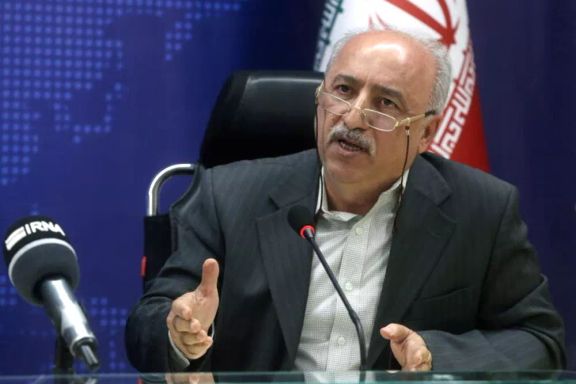
He decried the current practices and government's attempts to address the symptoms rather than the root cause of multiple crisis.
"The Iranian government has used a variety of measures to cover its budget deficit, including selling bonds, state assets, and state-owned companies; eliminating subsidized dollars; spending the National Development Fund; raising taxes; increasing the prices of goods and services," and printing money.
Describing the US withdrawal from the 2015 nuclear deal as a heavy blow that exacerbated Iran’s economic problems, Afghah said that former US president Donald Trump’s decision was the result of Iran’s wrong policies. He also rebuked Iran’s hardliners for welcoming US and international sanctions and disregarding their impacts on the country. He quoted former president Mahmoud Ahmadinejad, who famously called UN resolutions “useless pieces of paper” and dared the Security Council to keep issuing them over Iran over its nuclear program.
The economist argued that the government has no choice but to negotiate with the US in order to lift the sanctions. Additionally, Tehran has to resolve its issues with the International Financial Task Force (FATF), which has kept Iran on its financial ‘blacklist’ in recent years for not adhering to transparency and international conventions against money laundering and financing of terrorism.
If the Iranian government is unable to reach an agreement to lift the sanctions and resolve the FATF issue, and regional tensions continue, the economic and social conditions in Iran will deteriorate significantly, he said.
“The hardline Principlists, who dominate the new parliament and the government, prioritize ideological and political issues over solving the economic and social problems of the country. The possibility of Donald Trump's re-election further increases the uncertainty and the economic risk. As a result, we can expect the Iranian currency to lose more value, rising prices and worse economic indicators, more emigration and brain drain, and the flight of capital,” the economist said.
However, he argued that even if the sanctions are lifted, the Iranian economy will not improve significantly. “In the best-case scenario, the situation will not get worse, but it will not get much better either."
Iranian lawmaker Masoud Pezeshkian echoed similar concerns on Monday, highlighting that the main reason for the government’s failure in fulfilling its economic promises is not employing experts for the jobs. “The administration had promised to reduce inflation to less than 10 percent, now it is hovering around 50 percent. It had promised to build one million housing units, but they cannot do it even if eight years at office."
Pezeshkian went on to say, “We always try to say everything is fine and not address the issues we have. As a result, when people protest about the problems, we claim that they are wrong, and we have achieved success."
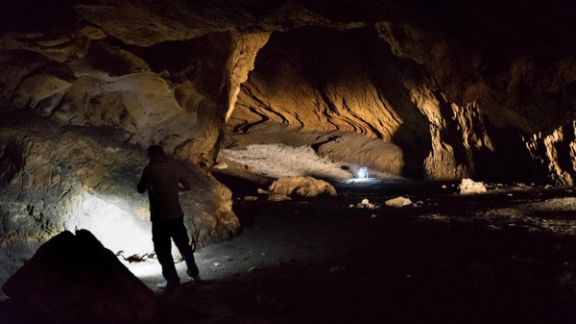
A new study has unveiled the Persian Plateau as a pivotal geographic location serving as a hub for Homo sapiens during the early stages of their migration out of Africa some 70,000 ago.
After years of debate, the new study said the human species, who emerged in Africa more than 300,000 years ago and migrated out of the continent 60,000 to 70,000 years ago, have lingered for thousands of years in a geographic hub that spanned Iran, southeast Iraq and northeast Saudi Arabia. These bands of hunter-gatherers then went on to settle all of Asia and Europe starting roughly 45,000 years ago.
Their findings were based on genomic datasets drawn from ancient DNA and modern gene pools, combined with palaeoecological evidence that showed that this region would have represented an ideal habitat, because of its capacity to support a larger population compared to surrounding areas in West Asia.
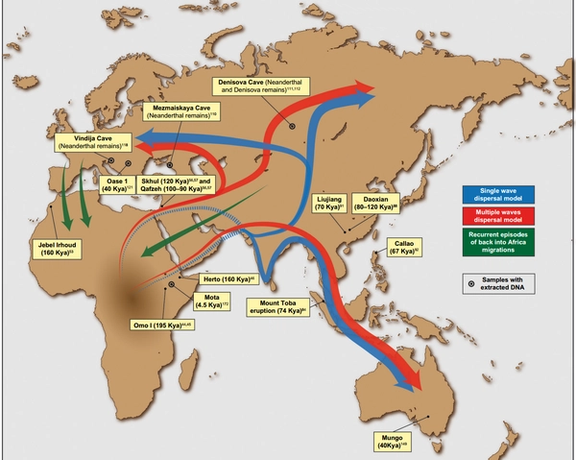
"Our results provide the first full picture of the whereabouts of the ancestors of all present-day non-Africans in the early phases on the colonization of Eurasia," said molecular anthropologist Luca Pagani of the University of Padova in Italy, senior author of the study published in the journal Nature Communications, opens new tab.
Anthropologist and study co-author Michael Petraglia, director of the Australian Research Centre for Human Evolution at Griffith University, said the study "is a story about us and our history - our goal was to unravel some of the mystery about our evolution and our worldwide dispersal." "The combination of genetic and paleoecological models allowed us to predict the location where early human populations first resided as soon as they exited Africa," Petraglia added.